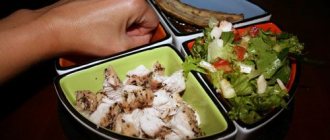Adherents of different fasting systems consider them universal, suitable for almost any person. In fact, this is almost true if you approach the matter wisely. One of the best methods is to fast on water for 7 days. It will help not only cleanse the body of previously accumulated toxins, but also effectively fight excess weight and obesity.
The benefits and harms of water fasting
Due to the removal of various harmful substances from the body, for example, toxins, waste products and other waste products, fasting on water has a beneficial rejuvenating, as well as general health effect. This program involves a complete abstinence from food for a certain period. At the same time, you need to drink enough water, otherwise serious negative health consequences cannot be avoided.
Before you start fasting, you need to understand that you will have to strictly follow all the rules of this process. Without preliminary preparation, this can end badly. First of all, you need to choose the right system that will not conflict with your health and general condition.
Water fasting can be divided into two main types: preventive and therapeutic (autophagy). There is a lot of material about the latter on our website, it is worth studying it in more detail. The preventative form can be practiced independently, and its duration usually does not exceed five days. But you always need to start small.
The treatment can last more than three weeks, so it is better to carry out something like this after consultation with the attending physician, with his permission and under close supervision. If you do everything wisely, then these days on water alone will bring more benefits than any strict restrictions, like the geisha diet.
Advantages and Benefits
A properly organized process of therapeutic fasting on water for 7 days will undoubtedly bring a lot of benefits. However, exactly what benefits a temporary refusal of food brings with it is not clear to many. Let's figure it out together.
Losing extra pounds
First of all, fasting helps fight excess body weight, which in the future can prevent many different diseases directly related to it.
Cleansing from toxins and impurities
Despite the fact that many scientists are skeptical about this, fasting still helps rid the body of harmful substances accumulated in it. The fact is that many toxic substances accumulate in the lipid layer and this is a fact. There they are preserved, this is the protective mechanism of our body. When fat goes away, poisons come out with it.
Improving the performance of the immune system
Thanks to getting rid of harmful substances, pathological processes in internal organs often disappear. Everything is simple here: inflammatory and other harmful processes stop, and the immune system is able to more effectively fight other problems. Therefore, resistance to disease increases significantly.
Improving the functioning of internal organs
At the very beginning of fasting, many people experience quite a few unpleasant symptoms, which then disappear. If you pass this stage, then all vital systems will be activated, and the organs will begin to work as if after a reboot. This especially applies to the stomach, kidneys, liver, and the entire digestive tract.
Increased well-being
Many people think that once they lose the unsightly fat on their hips and belly, they won’t get any more benefits, but that’s not true. In addition to obvious slimming, they will receive the elimination of dark circles around the eyes, beautiful unsplit ends of the hair, strong nails and many similar pleasant little things. Those who have already tried the fasting method on themselves note that within a few days lightness appears in the body and the brain becomes clearer.
Some people call the main advantage of this type of body cleansing its extended action over time. That is, you will only need to fast from one to seven days, and the effect of it can last for six months or a year. Therefore, it is proposed to carry out such therapeutic cycles of food refusal at intervals of every six or twelve months.
Contraindications
Everything looks so cloudless and joyful that many, without hesitation, rush headlong into the pool. Under no circumstances should you do this. The thing is that there are a number of prohibitions that should not be overlooked. Fasting is always a great stress for our body and not everyone reacts to it normally. If you are in a weakened state of health, it is generally not recommended to decide on something like this.
- Diabetes.
- Cardiovascular diseases.
- Chronic diseases in the acute stage.
- Inflammatory processes in the body.
- Diseases of the gastrointestinal tract of various etiologies.
- Rheumatism.
- Arthritis and arthrosis.
- Liver and kidney diseases.
- Mental, psychological and nervous disorders.
- Exhaustion of the body, including anorexia.
- Pregnancy and breastfeeding period.
As you can see, there are quite a few conditions and diseases for which fasting, even for medicinal purposes, is strictly contraindicated. It is not recommended to do a weekly cleanse for those who have never tried fasting before. Then it’s better to first try the process of giving up food for a day, then for three, and only after that start a week. Do not forget that between periods of fasting you need to take significant breaks of several months.
Proper preparation for water fasting
If there are practically no problems with your health, and you are full of strength and enthusiasm, then you can begin to figure out how to prepare for a 7-day fast correctly. This should not cause any special difficulties. It’s enough just to follow all the necessary rules, then everything will go like clockwork.
- In advance, even before you start fasting on water, try to minimize and then completely eliminate from your diet all the harmful things that you consume daily. You will have to give up sweets, fatty, salty, smoked, fast food, soda. This way the process will happen much earlier. This refusal of “harmful foods” should be applied a week or two or three days before the start of fasting.
- Two or three days before starting such a diet, you need to include more vegetables, fruits, and natural products in your menu. It is optimal to generally switch to vegetarianism for these couple of days, but this is all individual. It is better to consult a doctor about this.
- Give up bad habits that can provoke an unexpected breakdown: smoking, alcohol, and especially psychotropic or narcotic substances.
- You will have to establish a drinking regime before fasting. You need to drink a glass and a half of water every hour or two.
- Go to your doctor, undergo all the necessary studies and tests to identify diseases that you may not even know about. Only after this can you be completely sure that fasting will not have a detrimental effect on your health.
Some nutritionists advise doing an enema just before the start of the process. This should remove any excess toxins from the intestines to minimize discomfort in the first days. Everything here is quite individual, so it is better to consult your doctor. He knows more accurate answers to your questions,
Results of a seven-day water fast
Women who have gone through this difficult stage of life state in their reviews that by fasting on water for a week, they rid their bodies of ailments such as toxins, carcinogens, waste and poisons. That is, naturally, they feel much better. If you follow this diet correctly, you can lose up to 7 kilograms of excess weight in seven days, that is, about 1 kg per day.
Plus, many claim that after this course of fasting their complexion has changed for the better, and their eyesight has also improved!
Basic fasting scheme and side effects: rules of restorative nutrition
If you really want to survive all seven days, you will have to try. The main thing to remember is to adhere to a strict daily routine. If this is not done, you may not only not get the expected results, but even experience the opposite effect.
Fasting can cause irreparable harm to the body, which is not at all acceptable. Therefore, it is important not to overdo it. It is during this seven-day period that the body actively burns fat as it needs fuel to produce energy. In the second week, it will already begin to actively dry out the muscles, destroying them. This can ultimately lead to dystrophy if you act without preparation and not according to the rules.
The entire seven-day fasting diet can be divided into two parts. The first stage, lasting three days, is a slow entry into fasting. This is a kind of adaptation to life without food. On the fourth day, it’s time to begin the reverse process - leaving the diet. Since it should be slow, it needs to start early.
Basic fasting
Since this type of diet is divided into seven days, let's apply it starting on Monday, considering Sunday as the final stage. Although this is not at all necessary, you can start on any day of the week, depending on your desire and capabilities.
Monday
You won't be able to see any diversity here. Throughout your waking hours, you should drink only clean water and nothing else. You can drink as much as you want, but at least two liters per day. In the evening, you can do an enema with a liter of warm water.
Tuesday
It is believed that it is at this time that toxins begin to leave our body, toxins are eliminated slowly, it’s worth being patient. Often, fans of bad habits during this period begin to feel fetid tobacco breath, the “aroma” of fumes or acetone. Just then, the mucous membranes, for example, in the mouth, will begin to become hypersensitive. Therefore, it is better not to use a toothbrush on this day; you can use mouthwash.
To quickly get rid of toxins, it is best to shower twice or thrice a day. At the end of the day, you can also give an enema to remove all the unnecessary remnants of food stored in the intestines.
Wednesday
Another day of getting rid of harmful substances. You will also have to strictly follow the regime, drink a lot of water, wash several times a day. By that time, it won’t hurt to qualitatively reduce any physical activity. If you train at the gym, cut your regular schedule in half. The body is already under stress; there is no need to add shock to it. Excessive effort can lead to dizziness, nausea and even vomiting.
Breaking out of fasting
Thursday
From this day of fasting, the way out of it also begins. Just at this moment, the body is so accustomed to living on the water that no fatigue or weakness is felt. People usually begin to feel joy, lightness, inspiration, the will to live and new achievements.
On the fourth day, you can begin to slowly drink juices. But they must be natural, freshly squeezed. You should only choose fruits that are good for your stomach, for example, apples, plums or tomatoes. It is better to avoid exotic fruits and citrus fruits at this time. On Thursday, it is better not to overindulge, but drink only a couple of glasses of juice, and dilute them half with clean water.
Friday
On the fifth day, you can add juices, undiluted with water. However, you should never forget about the normal amount of fluid per day. Juices cannot be considered a complete drink, therefore 2-2.5 liters of water should be drunk throughout the day. It is she who will finally remove toxins and other poisonous substances from the body.
Saturday
The sixth day is the first when you can add at least some nutrition to your diet. On Saturday, you can cook thin porridge in water, for example, from a selection of cereals. Do not forget that it needs to be boiled until the grains are almost completely dissolved in order to get such a puree. Don’t forget about water again, it should be the same amount as at the very beginning of fasting.
Sunday
This is the final day of such a seven-day fast. Then you can add steamed or boiled vegetables to your diet. The correct way out of fasting for 7 days involves a very meager menu. You need to choose only porridges that are easy for the stomach. And again let's remind you about water. There should be a lot of liquid; you can also drink fresh juices and diluted juices.
What is water fasting?
Water fasting, also known as the water diet, is a type of fasting that involves drinking only water for a certain period of time. Such restrictions can last from 24 to 72 hours, and, like other forms of fasting, food intake is completely excluded during this period.
People try water fasting for a number of reasons. It is a common practice in many religions and is sometimes used to strengthen faith and focus on spiritual growth. It is also used to prepare for certain medical procedures, including certain blood tests and physical examinations.
Water fasting definitely has great health benefits. In addition to shedding extra pounds, it may also help support blood sugar control, improve heart health, reduce inflammation, and promote cell turnover in the body to slow down signs of aging.
The benefits of water fasting for the body
Options for recovery diets after a 7-day fast
It is clear that immediately on the eighth day, starting to eat everything without measure will be a real crime against yourself. The return to a normal diet should be smooth, gradual, slow. So how can you break a 7-day fast so as not to harm the body, but at the same time quickly return to the working pace of life?
Main rules
- You need to introduce foods into your diet one at a time, gradually, slowly, in small portions.
- The best helper when breaking fast is split meals.
- Protein products (eggs, meat, fish) should be returned last.
- It is better to start with vegetables and fruits, but it is important not to overdo it with them, as well as cereal porridges and sour milk.
- Vegetable fats should be introduced no earlier than the fourth day after the end of fasting, and animals only after a week.
- Ideally, the recovery from a strict water diet should be equal to itself, but in extreme cases, no less than four days.
Emergency exit in 1-2 days
If you urgently need to recover, you can resort to drastic measures, but there is no way to do this without a doctor’s recommendations. The main thing is to do everything thoughtfully, and also not to rush from one extreme to another.
- On the first day, you can introduce cabbage and carrot salad into your diet, perhaps with the addition of an apple. It is not recommended to season the dishes with anything.
- In the evening, you can treat yourself to stewed vegetables, also without any dressings.
- It is better to completely avoid salt these days or reduce its amount to a minimum.
- On the second day, you can sprinkle the salad with olive oil and add a drop of butter to the vegetables.
Correct water regime is required. It won’t hurt to drink a lot of fresh juices diluted with water, herbal decoctions or green tea these days. Please note that after a seven-day hunger strike, this will be a rather traumatic way out, so only those who have practically no health problems can decide to do it.
Out in 3-4 days
Here the rules are almost the same as in the first version. However, it is recommended to also add lactic acid products to the menu. However, it is strictly not recommended to eat fish, meat, mushrooms or beans (including soy, beans and peas). Just add foods gradually and drink a lot. With such a simple solution, you can gradually increase your physical activity, for example, go to a workout, do a light jog, or just take a walk in the park for a couple of hours.
Seven-day recovery from fasting
This is the surest way out, which has a gentle effect on the condition of your already weakened body. if there is no need to rush, then it is best to use just such a technique to return to normal life.
Day 1
Dilute freshly squeezed juices with water in a one to one ratio. You need to drink at least 1.2-1.5 liters per day. Distribute this amount evenly over your waking hours, it will be easier and the routine will not be disrupted. It is perfectly acceptable to drink clean water. Juices can be diluted less in the evening, thereby increasing the concentration of nutrients.
Day 2
Until lunch, it is recommended to continue the diet of the previous day - juices diluted with water. By lunchtime you can drink pure ones. After lunch, you are allowed to eat some fresh vegetables. For ease of digestibility, you can grate them using a fine grater.
Day 3
By this point, your body is almost ready to return to normal again. But there is no need to add stress to him. On this day you can eat fruits and vegetables without grinding them. Cook grain porridge in water, add bread rolls, as well as dried fruits to the menu.
Day 4
On this day you can cook vegetarian soups seasoned with vegetable oil and make vegetable salads. Boiled vegetables also fit well into this system.
Day 5
On the fifth day, you can safely introduce lactic acid products, but with low fat content. Kefir, fermented baked milk, cottage cheese, yogurt - all this will provide a pleasant variety to your previously plant-based diet. You can already throw a small piece of natural butter into the porridge.
Day 6
Just in time for the sixth day, you can return to salting your dishes for the first time in two weeks. The menu may already include hard and soft cheese, sour cream, and low-fat cream.
Day 7
At the last stage, you can slowly add eggs, lean poultry, or better yet, rabbit. Boiled or steamed chicken breast will fit perfectly into the menu for this day. Seafood and fish also cannot be ignored. The main thing is not to start overeating in huge portions, but eat everything little by little, giving the gastrointestinal tract time to get used to normal loads.
Exit by Paul Chappius Bragg
This American naturopath and healthy lifestyle promoter also spoke about the benefits of therapeutic fasting. He invented his own way out of a seven-day fast, which is worthy of attention. So, let's figure out what Mr. Bragg advised all his readers and followers.
- Since the stomach and intestines tend to contract during a seven-day fast, first of all they need to be brought back to normal. To do this, on the seventh day, peel the tomatoes and boil them in lightly salted water. Eat the cooled fruits in as much quantity as you want.
- By the morning of the eighth day, make a standard cabbage-apple-carrot salad. You can season it with freshly squeezed orange juice.
- For an afternoon snack or lunch, you can prepare stewed tomatoes or vegetables. Spinach, mustard, and artichokes are perfect.
- In the evening, add bread to your diet. But before use, it must be dried in a dry frying pan or in the oven until it becomes brittle.
- For lunch the next day, you can make a salad of grated carrots. Celery and cabbage work well too. You can season it all again with orange juice.
- For dinner, you can already bake or stew a piece of ripe pumpkin. However, no oil is added to the dishes yet.
- On the third day of release, you can already consume sprouted grain crops. They can be consumed with honey for taste, the main thing here is not to overdo it. Vegetable and fruit salads should also be available.
After following these rules, the next morning you can drink kefir and boil an egg. For lunch you can already try adding vegetable oils, and the next day - seafood and dietary lean meat. It is clear that all this must be steamed, baked or boiled. There is no talk of any frying for the next week at all.
How the body reacts to fasting for 7 days
Due to the fact that many people use similar methods to get rid of excess fat, the question of how much you can lose in a week of fasting remains very relevant. In fact, all this is very individual, depending on many factors: initial physique, weight, food preferences, natural and genetic inclinations, and so on. Let's listen to those who have already used such a system.
Emma Degtyareva, St. Petersburg:
“I have been practicing seven-day fasting regularly for five years now. I tried this method for the first time to get rid of extra pounds. For the first time, I managed to lose about 2.5 kilograms in a week, it was a very good result (I lost a total of 7 kilograms, but 4.5 subsequently quickly returned). I don’t believe in the existence of toxins, since scientists refute this theory, but clearing your head of bad thoughts and making your brain work with renewed vigor is also a good idea. As a bonus, my skin improved, annoying acne disappeared, my nails stopped breaking and my hair stopped splitting. However, this effect was not achieved immediately, but only after a year of persistent regular fasting.”
Elena Kasatkina, Saratov:
“I first heard about the seven-day hunger strike from my mother. She tried this type of cleansing from toxins and waste, and also in order to lose a little weight before going to the sea. I tried it on myself. No special miracles happened. I started with one day, then after a break, I fasted for three days, and only after three months I decided to do a seven-day fast. I drank clean water all the time and did the right thing. However, I only managed to lose three kilograms. But my general condition has improved noticeably, and intestinal problems (constipation) have gone away. I will practice in the future.”
Dmitry Kolskikh, Naberezhnye Chelny:
“In the past I was a professional athlete, but now I am retired. I began to notice that I was rapidly gaining excess weight without any special changes in diet or physical activity. I study regularly, work in my own garden and in the garden, making various technical devices to simplify the cultivation of the land. I started and ended my fast correctly, as a nutritionist friend once recommended. I immediately lost about five kilograms, perhaps due to the fact that I did not limit my activity. Now I fast for weeks every four months. I feel rejuvenated, energetic and healthy. I recommend it to everyone."
Useful literature on therapeutic fasting
- Galina Kalyuzhnaya, Irina Brazhko “Proper fasting from a professional nutritionist.”
- Paul and Patricia Bragg "The Miracle of Fasting".
- Yuri Nikolaev “Fasting for health.”
- Khrushchev V.L. “Starve in order to live without getting sick. Therapeutic fasting."
How to properly fast on water
As a rule, fasting on water lasts a relatively short period: from 1 to 3 days. Longer restrictions should only be carried out under direct medical supervision.
During fasting, it is important to listen carefully to your body. While light activity may be normal for some, others may experience side effects such as fatigue, weakness, or dizziness.
Drinking plenty of water is important to maintain good hydration. According to the National Academies of Sciences, Engineering, and Medicine, it's best to aim for about 2.6 to 3.5 liters of fluid daily for women and men, respectively.
It is also very important to enter and exit fasts correctly. A couple of days immediately before fasting, eat light food that is easily digestible, limit animal protein. When coming out of a fast, also start with soft foods, such as bone broth, cooked vegetables and leafy greens. Then slowly increase your intake and reintroduce other healthy foods into your diet.










